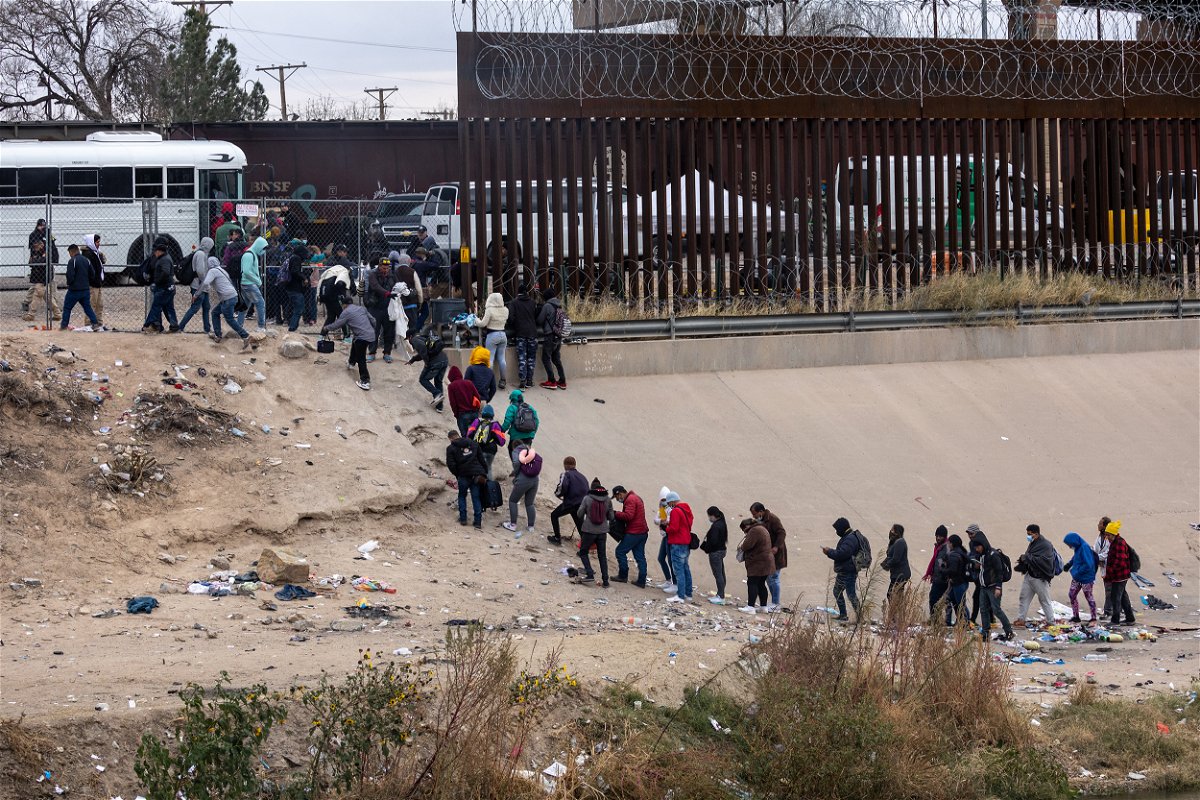GOP-led states ask Supreme Court to allow Title 42 to remain in place

(CNN) -- A group of GOP-led states raced to the Supreme Court on Monday in an emergency bid to keep in place a Trump-era immigration policy known as Title 42 that is set to go off the books Wednesday.
The policy allows officials to swiftly expel migrants at the US border and was vacated last month by a federal district court judge who called Title 42 "arbitrary and capricious." The judge said the program could remain in effect until December 21.
Already, federal officials and border communities are bracing themselves for an expected increase in migrant arrivals as early as this week, as the issue of immigration continues to ignite both sides of the political divide. The Department of Homeland Security is putting in place a plan for the end of the program that includes surging resources to the border, targeting smugglers and working with international partners.
Arizona Attorney General Mark Brnovich -- who is taking the lead for the states -- said in a statement that "getting rid of Title 42 will recklessly and needlessly endanger more Americans and migrants by exacerbating the catastrophe that is occurring at our southern border," adding: "Unlawful crossings are estimated to surge from 7,000 per day to as many as 18,000."
Brnovich told the justices in court papers that they should put the lower court ruling on hold. As an alternative, he said that the justices should grant an "immediate" temporary injunction to maintain the status quo and also consider whether to skip over the appeals court and agree to hear arguments on the merits of the issue themselves.
"Failure to grant a stay here will inflict massive irreparable harms on the States, particularly as the States bear many of the consequences of unlawful immigration," Brnovich argued.
Late Friday night, the DC Circuit US Court of Appeals ruled against the states, holding that they waited an "inordinate" amount of time before trying to get involved in the case. That order triggered the emergency application at the high court. It is addressed to Chief Justice John Roberts, who oversees the DC-based appellate appeals court that ruled in the case.
Roberts is likely to refer the matter to the full court. As one option, the court could issue a temporary stay of the lower court's order to give the justices more time to consider the issue.
"This is a longstanding problem, more people are fleeing persecution, gang violence, failed states and climate change than ever before," said Stephen Yale-Loehr of Cornell Law School, who has been critical of the policy. "Even without Title 42, we would have more people than ever before trying to enter the United States," he added.
"Title 42 is not an effective way to manage our borders, instead, we need to both enact immigration reform in the United States and work with other countries so that people don't feel so desperate to leave in the first place," Yale-Loehr said.
In the early days of the coronavirus pandemic, the US Centers for Disease Control and Prevention issued a public health order that officials said aimed to stop the spread of Covid-19. The border restrictions were controversial from the moment the Trump administration announced them.
In the case at hand, six families that unlawfully crossed the US-Mexican border and were subject to the Title 42 process brought the original challenge.
In court papers, their lawyers at the American Civil Liberties Union argue that Covid-19 was always a thinly veiled pretense to increase immigration control. "There is no legal basis to use a purported public health measure to displace the immigration laws long after any public health justification has lapsed," said Lee Gelernt, an ACLU lawyer representing the migrant families in the suit.
The Biden administration objects to the states' attempt to intervene in the ongoing dispute and has said it is prepared to allow the program to end, but stresses it is still appealing the district court opinion to preserve the authority of the government to impose public health orders in the future.
White House press secretary Karine Jean-Pierre said the administration would have more details Tuesday on its plans ahead of the rule's expiration and reiterated the US would continue to enforce its immigration laws amid the current influx. But she suggested there was little the administration could do to prevent the order from expiring on Wednesday.
"There's a court order that is telling us to lift Title 42, and we're going to comply because we follow the rule of law," she said.
This story has been updated with additional details.
The-CNN-Wire
™ & © 2022 Cable News Network, Inc., a Warner Bros. Discovery Company. All rights reserved.


